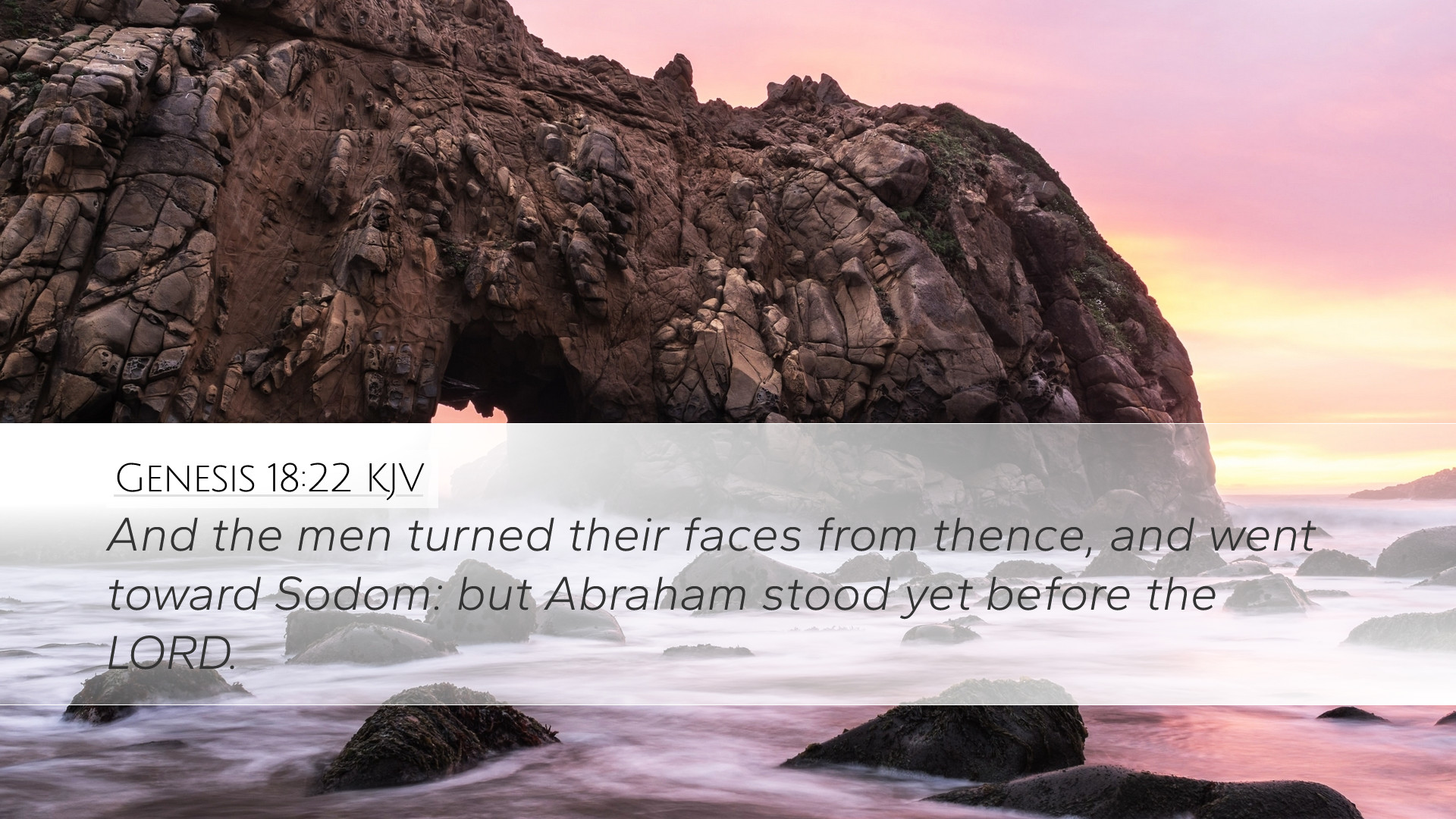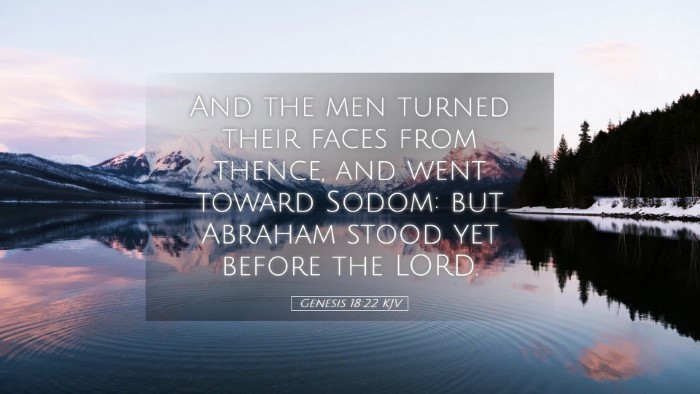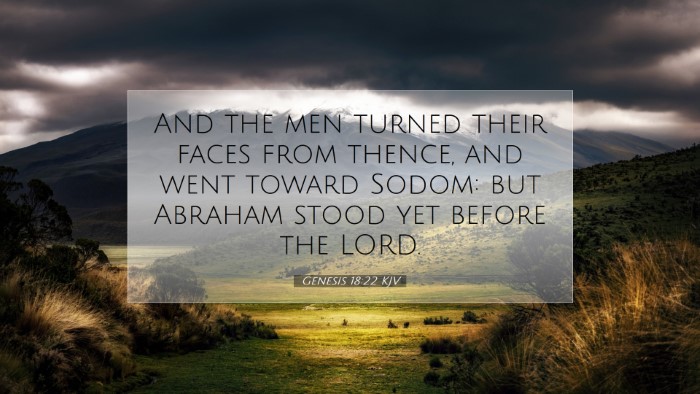Commentary on Genesis 18:22
Verse: "And the men turned their faces from thence, and went toward Sodom: but Abraham stood yet before the LORD." (Genesis 18:22)
Introduction
Genesis 18:22 is a pivotal scripture that captures a significant moment in the narrative of Abraham's intercession for Sodom. This verse not only highlights the determination and boldness of Abraham but also reflects key theological themes surrounding divine judgment, mercy, and the nature of prayer.
The Context of the Passage
In this chapter, the Lord visits Abraham in the form of three men, who, after sharing the promise of a son, reveal the impending judgment upon Sodom and Gomorrah. The journey of the men toward Sodom marks the beginning of a profound dialogue between God and Abraham, where the latter pleads for the cities. Understanding the surrounding context is crucial for a comprehensive interpretation of verse 22.
Theological Themes
-
Divine Justice and Mercy:
Abraham's interaction with God reveals the tension between divine justice and mercy. As God prepares to investigate the outcry against Sodom, it presents an opportunity for intercession, illustrating His willingness to listen to human plea.
-
The Nature of Intercession:
Abraham stands before the Lord, emphasizing the role of the mediator. This act of standing is symbolic of his active participation in the fate of the cities, highlighting the power and responsibility of intercessory prayer in the life of believers.
Insights from Commentaries
Matthew Henry
Henry posits that Abraham’s steadfastness in prayer signifies a profound aspect of faith. Despite knowing Sodom’s wickedness, Abraham approaches God with humility and boldness, suggesting that true prayer acknowledges both God’s holiness and mercy. Henry suggests that Abraham's concern reflects a heart deeply invested in the welfare of others, serving as a model for believers today.
Albert Barnes
Barnes emphasizes the significance of God's communication with Abraham. He notes that God's readiness to disclose His plans demonstrates a relational aspect of divine governance—God desires dialogue with His people. This communication conveys that God’s judgment is informed by thorough investigation, countering any notion of arbitrary punishment. Barnes stresses the importance of prayer and God's responsiveness to it, asserting that while justice is imperative, mercy is a central characteristic of God's nature.
Adam Clarke
Clarke’s commentary highlights the geographical and moral significance of Sodom. He points out that the city stood as a representation of extreme sinfulness. The departure of the men towards Sodom signifies the certainty of judgment. Clarke also draws attention to Abraham’s role, indicating that his intercessory stance depicts the grace afforded to humankind and God’s desire for a righteous remnant. Clarke elaborates on the idea that God’s judgment is often tempered by the presence of the righteous within a community, which Abraham implicitly understands.
Application for Today
The implications of Genesis 18:22 extend beyond the narrative into the lives of contemporary believers. Pastors, students, and theologians can draw lessons about the necessity of standing in the gap for others, especially in times of moral decline and impending judgment. The boldness of Abraham serves as an encouragement that no situation is too dire for intercession. Additionally, it instills a deep understanding of God's patience and processes in dealing with sin.
Conclusion
Genesis 18:22 encapsulates a moment of profound dialogue between God and Abraham, filled with divine justice, mercy, and the intricacies of intercessory prayer. The insights from public domain commentaries provide a rich tapestry of understanding that enhances our appreciation of this scripture. As believers reflect on this passage, it serves as a reminder of their call to intercede for the world, embodying the compassion and boldness demonstrated by Abraham.


